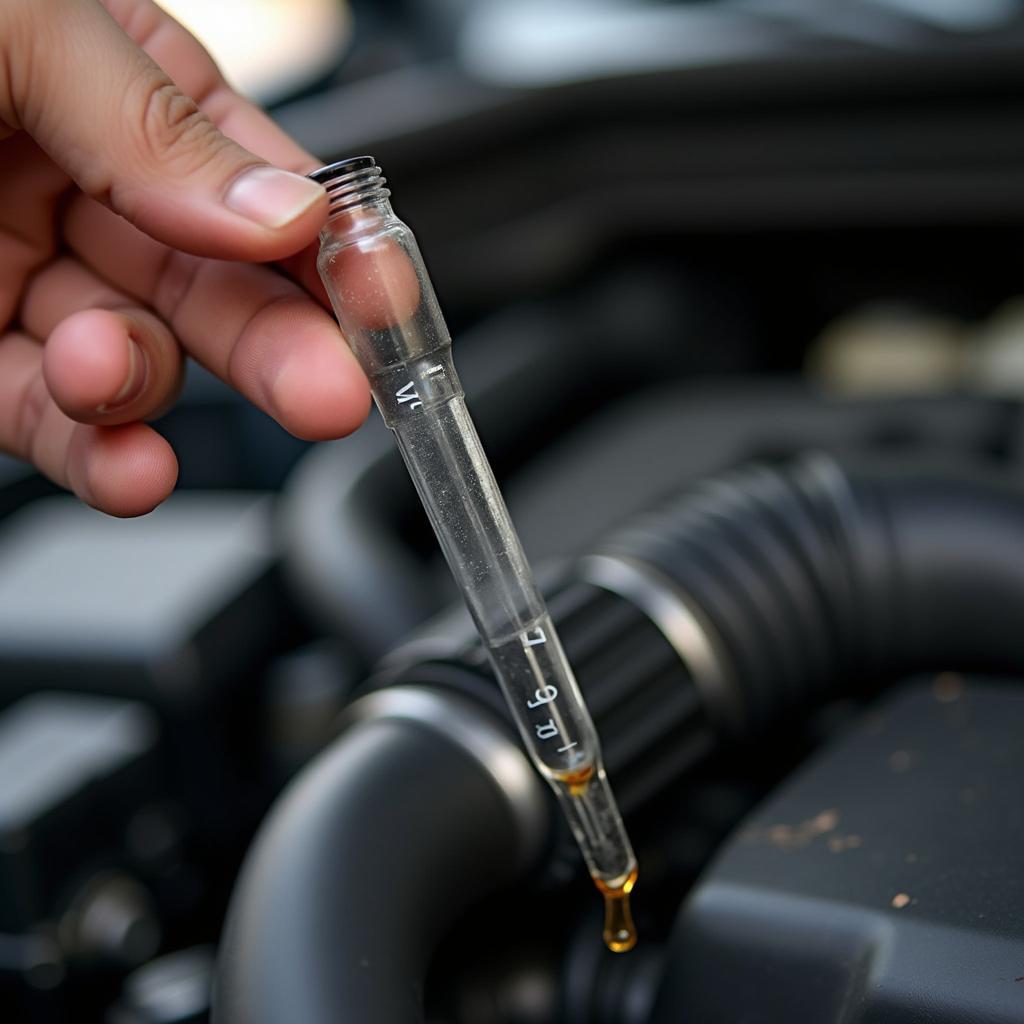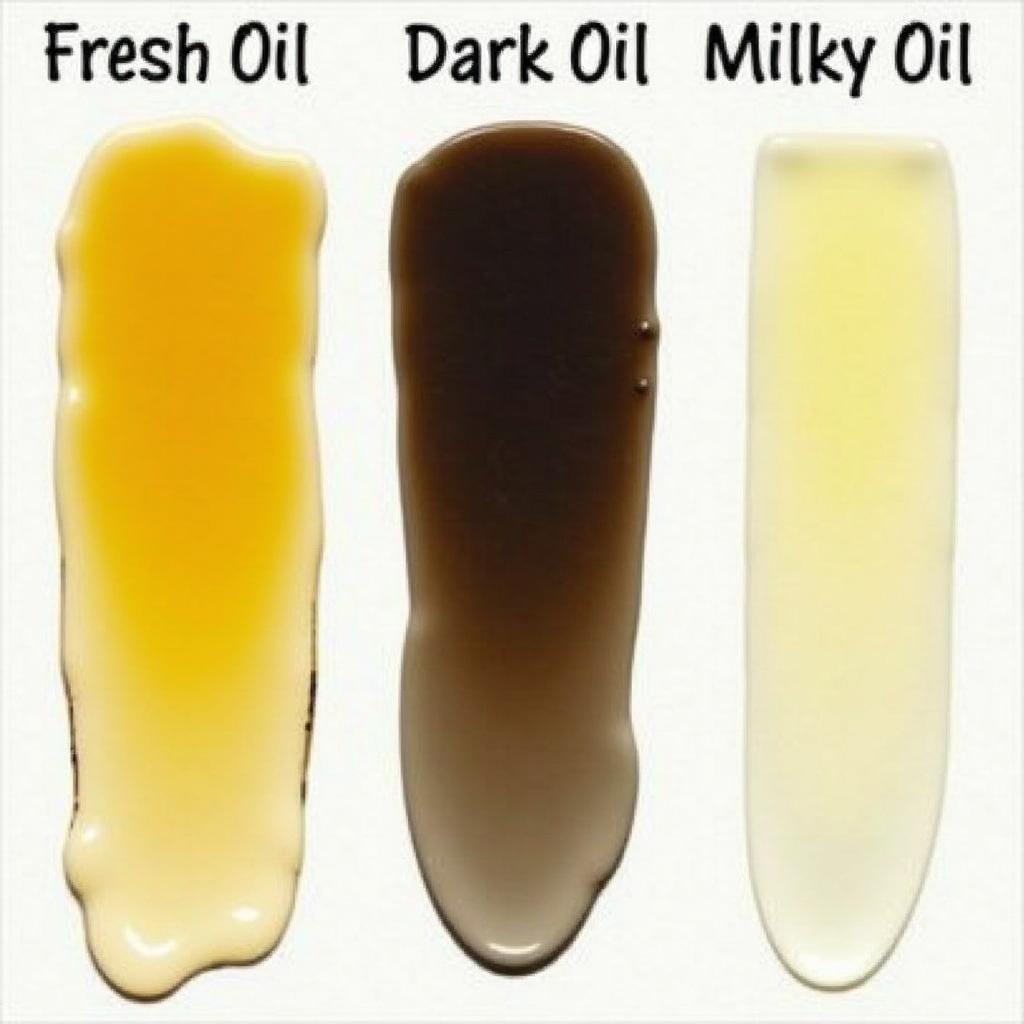Oil is the lifeblood of your car. Regularly checking your oil is therefore essential to avoid costly repairs and extend the life of your engine. This article explains everything you need to know about checking your oil, from its importance to how to do it and frequently asked questions.
An experienced mechanic once said, “A regular oil change is like life insurance for your car.” This emphasizes the importance of checking your oil. By detecting problems in time, you can prevent major damage and high repair costs. used VW pickup truck
Why is Checking Your Oil So Important?
Engine oil lubricates the moving parts in the engine, reduces friction, and prevents overheating. A low oil level can lead to serious engine damage, while an excessively high oil level can damage the seals. Regularly checking your oil helps ensure the optimal oil level and detect potential problems early.
 Checking engine oil
Checking engine oil
How Do I Check the Oil Level Correctly?
Checking the oil is a simple procedure that any driver can perform themselves. Park your car on a level surface and wait a few minutes for the oil to drain back into the oil pan. Pull out the dipstick, wipe it clean, and reinsert it completely. Pull the dipstick out again and check the oil level. The oil level should be between the “Min” and “Max” marks.
What Do the Different Oil Colors Mean?
The color of the oil can indicate the condition of the engine. Fresh oil is usually golden yellow or amber. Dark, black oil can be a sign of contamination and indicates a necessary oil change. Milky brown oil can suggest coolant in the oil, which is a serious problem and should be examined by a professional.
 Distinguishing engine oil colors
Distinguishing engine oil colors
Frequently Asked Questions About Checking Oil
- How often should I check the oil? It is recommended to check the oil level at least once a month, especially before long trips.
- Which oil is the right one for my car? You can find the correct oil type in your vehicle’s owner’s manual.
- What do I do if the oil level is too low? Add the correct oil up to the “Max” mark.
- What do I do if the oil level is too high? Visit a workshop to find the cause and have the oil level corrected.
Professor Klaus Müller, a renowned expert in automotive technology, emphasizes in his book “Modern Engine Technology”: “Regular checking of the oil level is an important part of vehicle maintenance and contributes significantly to the longevity of the engine.”
Checking Oil and the TÜV Inspection
The oil level is also checked during the TÜV inspection (or equivalent national vehicle inspection). A low oil level can lead to objections. It is therefore advisable to check the oil level before the TÜV inspection and top up the oil if necessary. You can learn more about the TÜV inspection on our page TÜV Konz.
 Checking oil level before vehicle inspection
Checking oil level before vehicle inspection
Oil Change and Other Services
Checking the oil is just one part of vehicle maintenance. Regular oil changes are equally important to ensure optimal engine performance and lifespan. We offer professional oil changes and other services for your vehicle. Feel free to contact us for more information and appointments. auto1.com experiences
Additional Tips for Checking Oil
When changing the oil, also pay attention to the condition of the oil filter. A clogged oil filter can impair the performance of the new oil. Golf 4 from below provides further useful information on vehicle maintenance. Also, remember that traffic conditions can affect your oil consumption. Traffic jam A3 Cologne towards Oberhausen can help you avoid traffic jams and thus optimize your oil consumption.
Summary
Checking your oil is a simple but important measure to extend the life of your engine and avoid costly repairs. By regularly checking your oil and reacting promptly to any irregularities, you can ensure your car stays in top shape. Do not hesitate to contact us if you have questions or need assistance. Our experts are happy to help.

